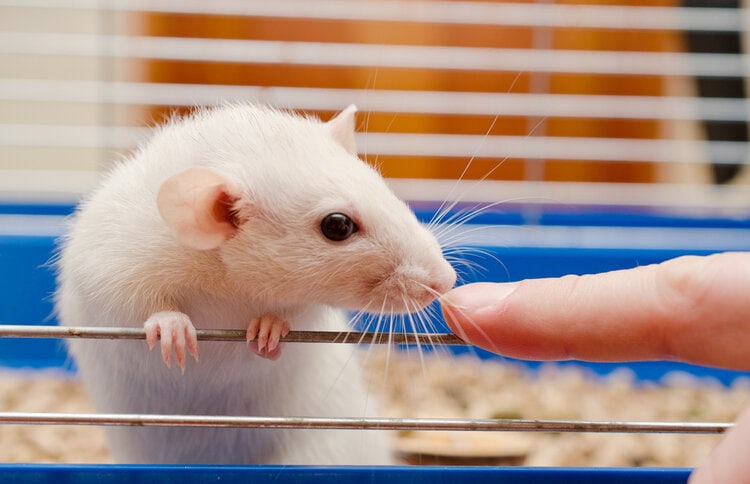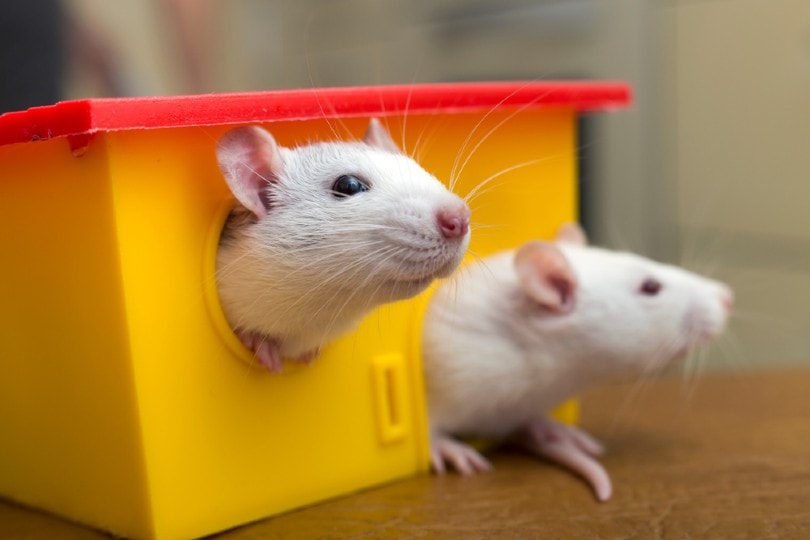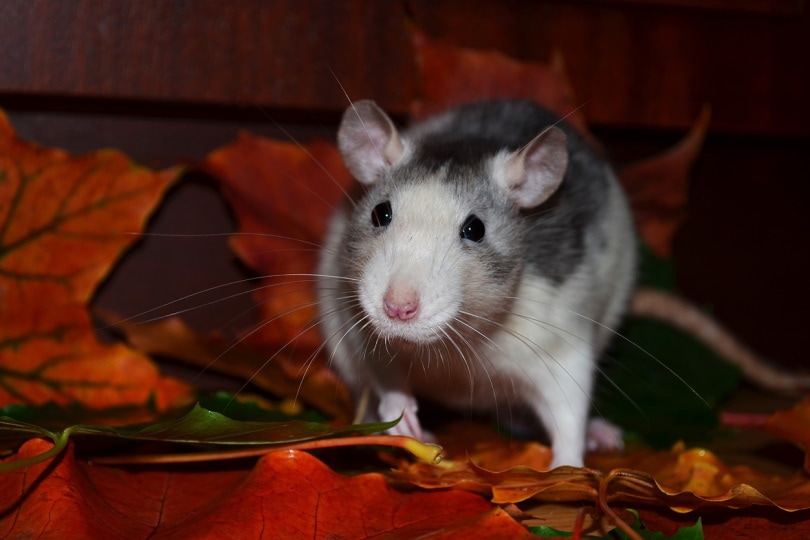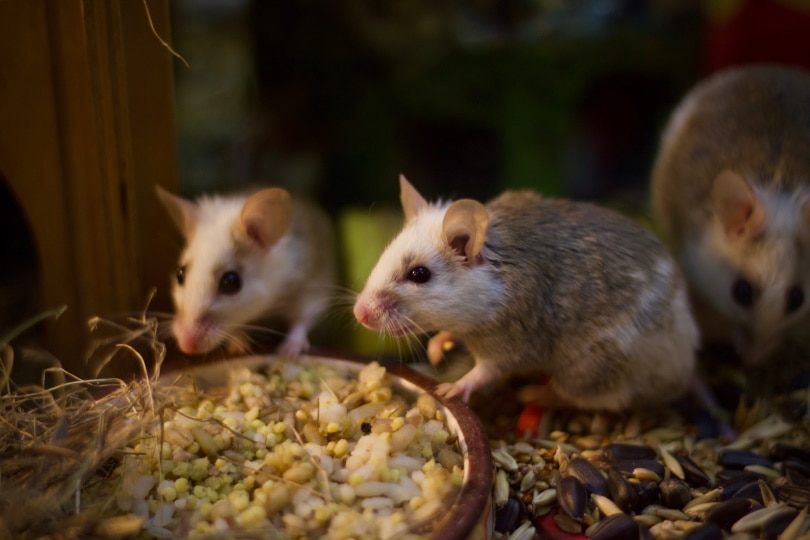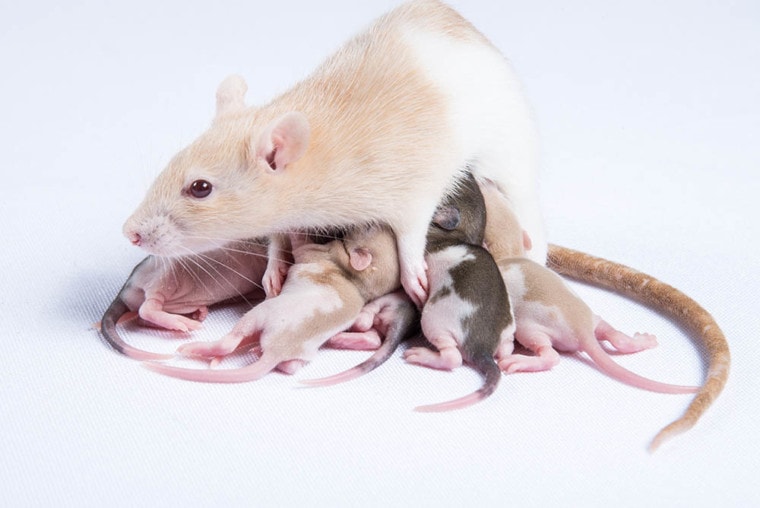
Typically a female rat will give birth to anywhere from 8 to 18 pups per litter. Their reproductive cycle starts at a young age; female rats reach sexual maturity within their first 8 to 12 weeks of life and start having heat cycles every 4 to 5 days. Once they become pregnant, they have a relatively short gestation period of approximately 21 to 23 days. The female will give birth and then around the 21-day mark, the pups are weaned.
Female rats can enter heat again within 48 hours after giving birth to become pregnant again. To maintain the health of the breeding female, it’s not healthy for her to be pregnant and nursing at the same time. Rats can give birth every 3 to 5 weeks if opposite-sex rats are not housed separately. If you’re breeding your rat in captivity, it’s recommended that a female rat should be given at least 2 months between pregnancy and litter raising to restore her health after birth.

Materials for Nesting
If your pet rat is pregnant, she will be looking for sufficient nesting materials to house her litter. Cages should be made of material that can resist rodent chewing and that is easy to clean. Wire floors can cause damage to rodent paws and should be avoided. Rats prefer solid nest boxes to clear nest boxes and they show a preference for long strips of paper as nesting materials. Bedding should be changed frequently on a normal cage cleaning schedule.
Ammonia, an odor-causing gas, can build up in bedding that is not cleaned, making your rat ill and potentially affecting the health of the pups. This is one of the reasons that aquariums are not recommended for rats because there is little to no air circulation to help prevent ammonia fumes from building up and making the rodent ill. Make sure your rat has plenty of fresh water and food during her pregnancy, so the pups are born healthy. After weaning, it’s best to remove the pups and separate them based on sex to prevent further pregnancies from developing.

8 Fun Facts About Rats
Now that you know all about the reproductive cycle of the rat and what nesting materials an expecting rat will need, here are a few fun facts about facts to leave you with:
Conclusion
Rats can give birth to anywhere from 8 t0 18 babies per litter. What’s more, they reach sexual maturity very quickly and can reproduce not long after having a litter. This is important to keep in mind if breeding rats, whether intentionally or accidentally, as it can quickly get out of control if you aren’t prepared. We hope this article helped you learn some interesting facts about a rat’s pregnancy.
Featured Image Credit: Liukov, Shutterstock


